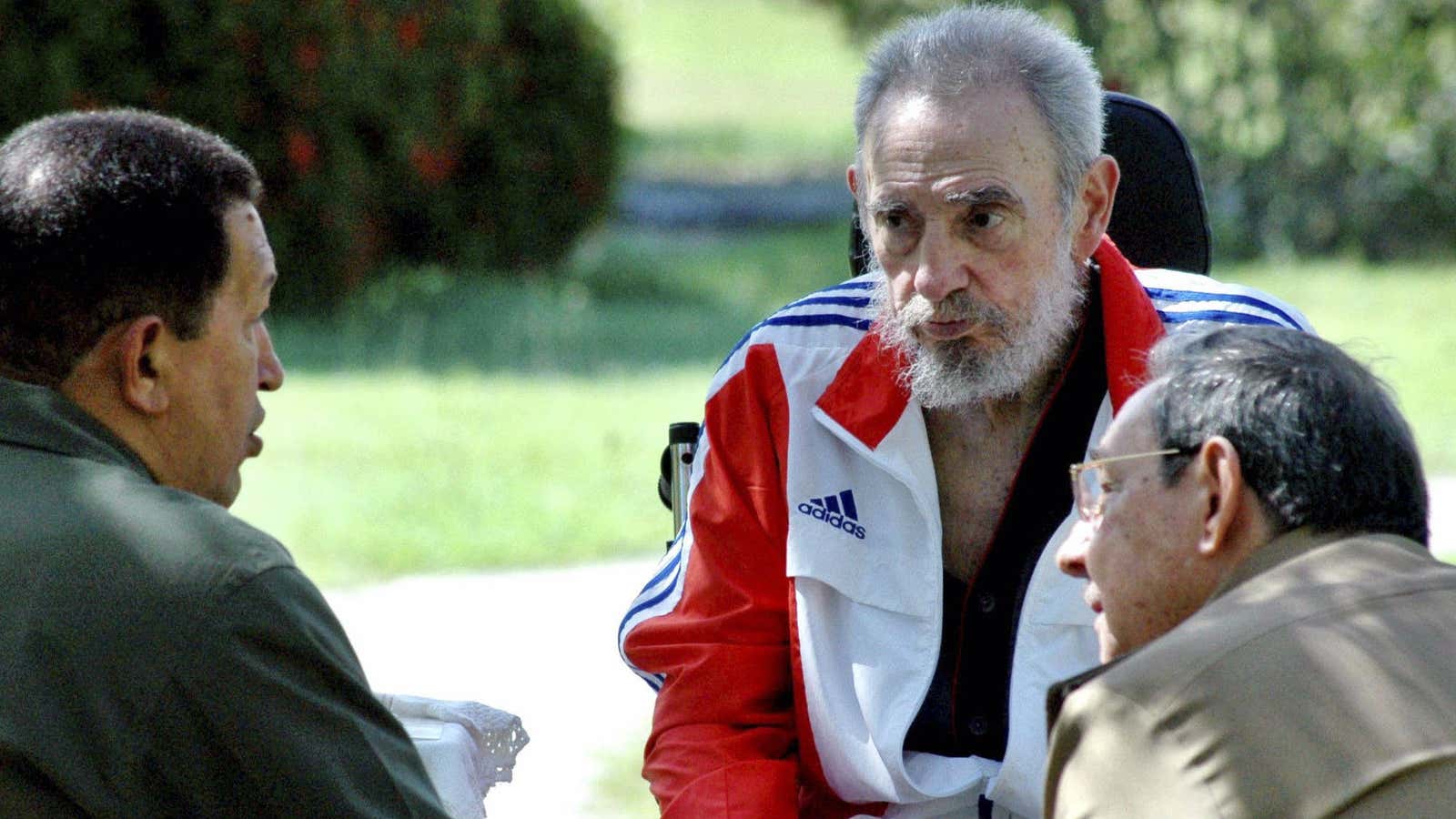Many Americans and Cubans believe that it is the tight noose of the US embargo that keeps the island nation deep in poverty. This narrative suits the regime of Fidel and Raul Castro, because it gives the grim brothers a ready excuse for their inability to give their subjects decent economic opportunities.
But the noose is pretty loose: Most of the world does business with Havana. Although much is made of Cuba’s special relationship with Russia and Venezuela, it trades with most of the countries that would be considered close US allies. With a halfway competent government, Cuba could be a fairly wealthy nation, able to brush off the American embargo as a minor inconvenience.
For a microcosm of the Castros’ failure as managers of the Cuban economy, look no further than the tourism industry. The island—blessed as it is with gorgeous beaches, warm weather, fantastic music, and terrific rum—gets nearly 3 million foreign tourists a year. Nearly a million come from Canada, with the UK, Italy, Spain, and Germany all accounting for large groups.
For a country with 11.25 million people, that’s a lot of tourists. (For comparison: India gets 6.5 million foreign tourists a year for its population of 1.25 billion.)
What’s more, for 20 years most tourist services and imported products in Cuba have been priced in an artificial currency created by the regime to bilk foreigners: the so-called “convertible peso,” or CUC, which is pegged 1:1 to the US dollar. Local products use the regular peso, called the CUP, which is 1/25 the value of the tourist version. Though the government announced last year that it would scrap the CUC altogether, that process is moving slowly.
The CUC makes hotels and other tourism services in Cuba absurdly overpriced relative to the real economy. But the businesses that charge in CUC are largely state-owned, so most of the money spent by those 3 million tourists goes to the government’s coffers, from where it goes…. who knows where? Certainly, very little reaches ordinary Cubans. And if the dual-currency system is abolished, that won’t change unless a lot more businesses end up in private hands.
Thus, lifting the US embargo will certainly increase the number of tourists, but it won’t automatically improve the lot of Cubans. That’s not a reason to keep the embargo in place: It hasn’t worked, and should be scrapped. But let’s be clear-eyed about what removing the embargo will achieve. While the Castro regime is in place, the answer is: not much.
